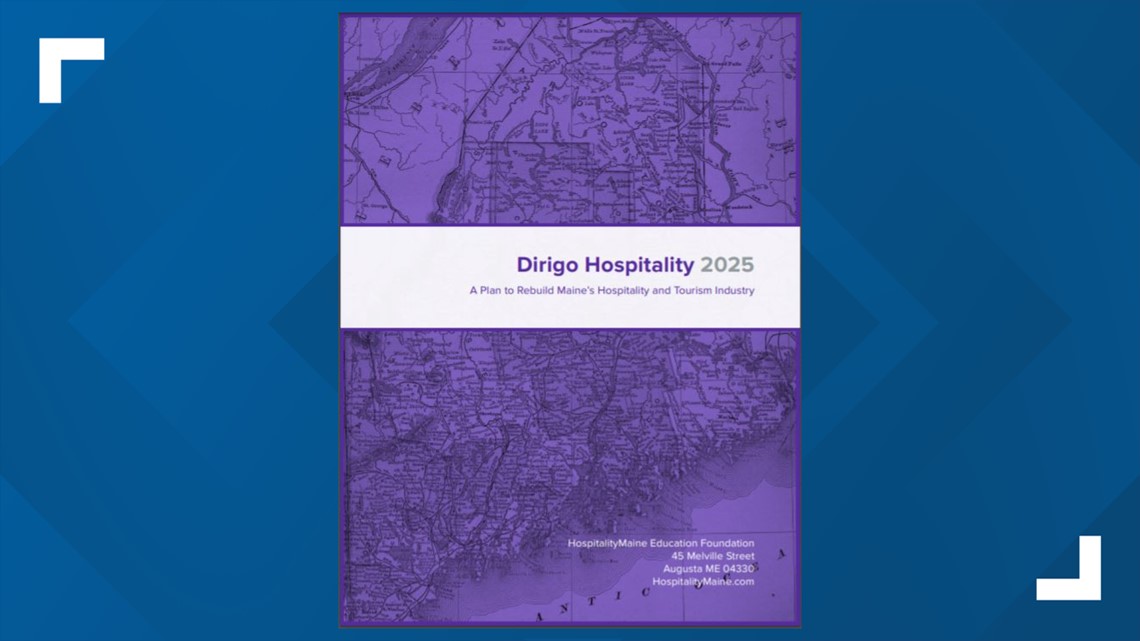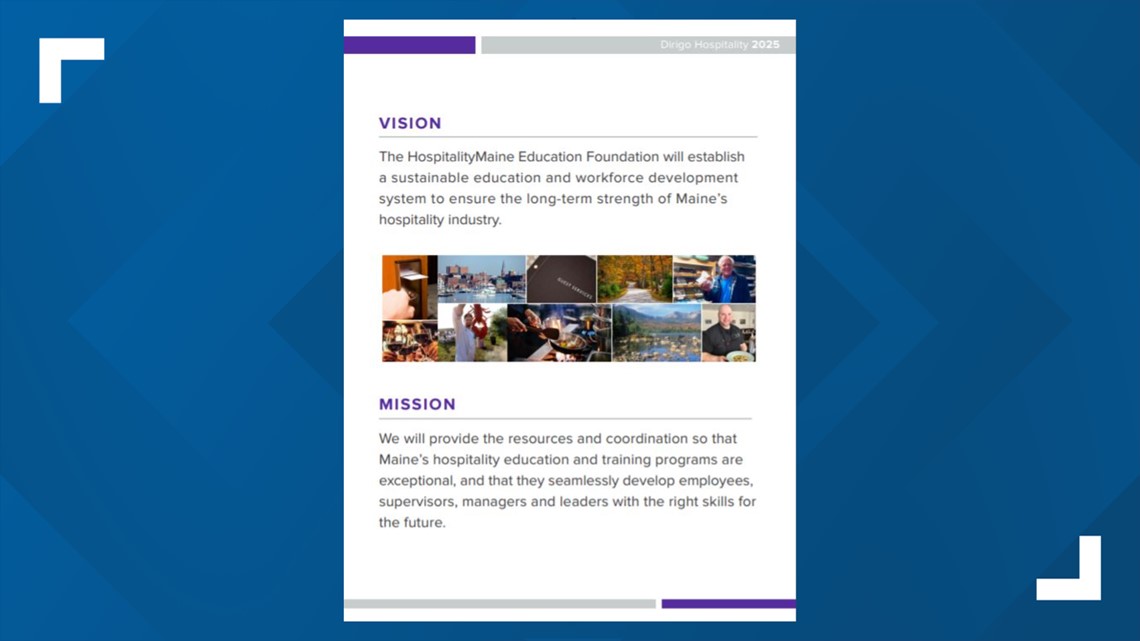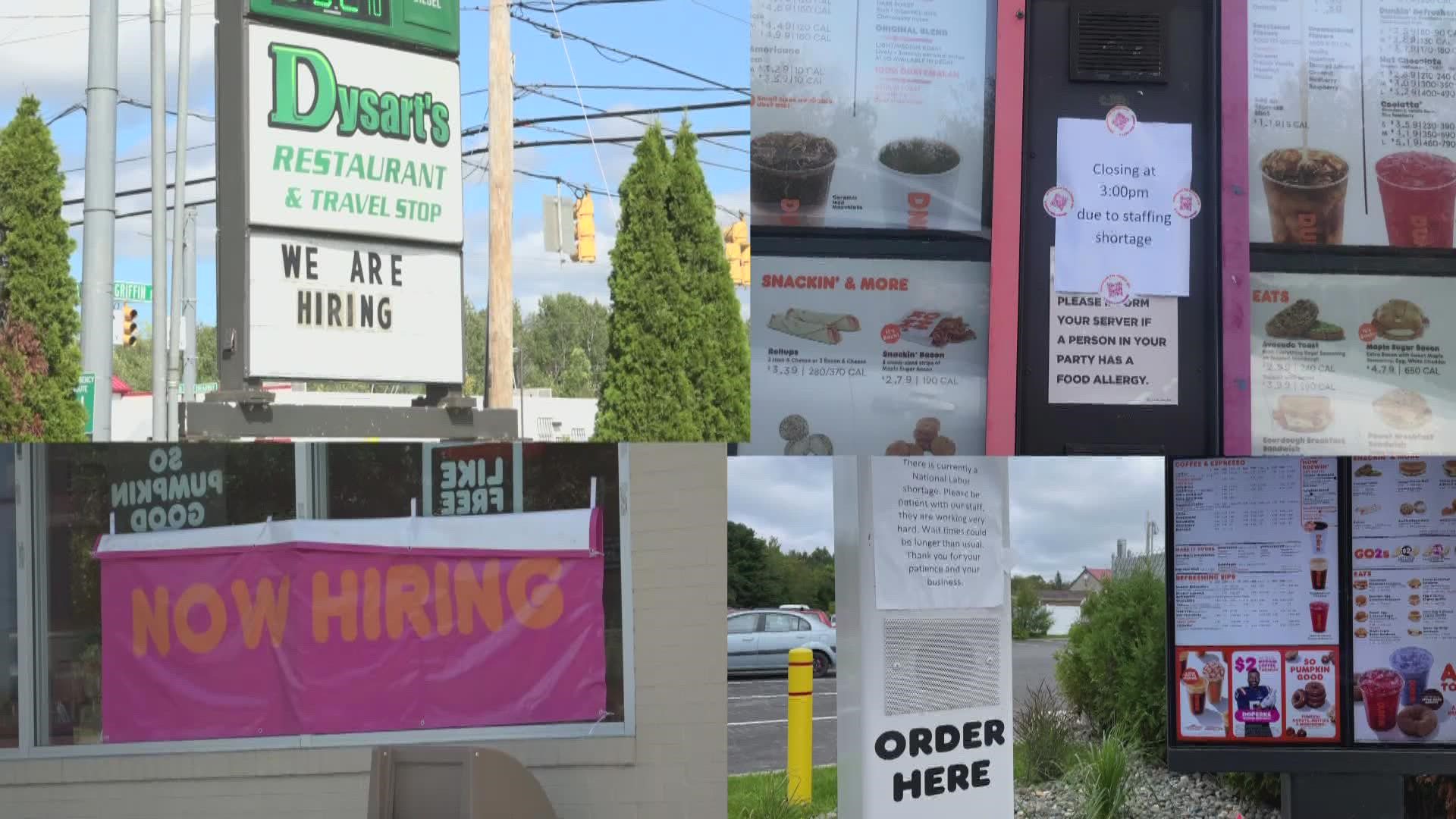MAINE, Maine — For years, the hospitality industry has had trouble finding enough workers. COVID only made it worse. Those “Help Wanted” signs you see in restaurants’ front windows aren’t solving the problem. But what will?
The shortage of employees is certainly not exclusive to Maine’s hotel and restaurant businesses, but it is something that has plagued the industry. A new plan is underway to reshuffle the deck – and perhaps build this sector of Maine’s economy back in a stronger way.
Chef David Turin of David’s Restaurant and Steve Hewins, the retired president and CEO of HospitalityMaine, are both part of HospitalityMaine's Education Foundation, which created the plan they call Dirigo 2025.
Like fishing, farming, and forestry, Maine’s hospitality industry has been a strong part of the fabric of the state since the 1800s. Restaurants and hotels combined are a more than $4 billion a year industry.
"When you add in all the business sectors that support or are supported by the industry, then you are up over eight billion," Hewins said. "It’s the second-largest private sector employer in the state."
It's an employer that finds itself struggling.
"Up until 2019 we had 11 straight years of record growth which then cratered in 2020, went back 35%," Hewins said. "The result of 2021 is we’re gonna hit another record over 2019, and we’re doing it with a lot less people."
Nearly 13,000 fewer people. And that is not a sustainable way for this industry to move forward.
To re-envision how they recruit and train employees, industry leaders in HospitalityMaine’s Education Foundation are rolling out a strategic plan that they are calling Dirigo 2025. Planning got underway in 2019 – before the pandemic was a factor.


How much did the pandemic exacerbate the needs that you were already addressing? "It put this giant magnifying glass on the problem, and what we thought was a problem we realized was a catastrophic problem," Turin said.
"When so many people lose their jobs and lose their livelihoods and their businesses, it really puts the urgency to it," Hewins said. "Our plan really links high school through community college to university to jobs to then ongoing educational training. When you link all that together, it’s a powerful pathway that people can see – parents can see, guidance counselors can advise kids on the pathway to do that."
While there are some programs existing at the community colleges, foundation organizers would like to see training expanded to all seven of Maine's community colleges.
"It can’t be successful if we don’t continually build this pathway," Hewins said. "And that’s really the basis of the plan, I think."
"It’s not just getting more people to come and work in the industry, we need better trained people than we used to have," said Turin, the chef and owner of three restaurants in the Greater Portland area. "The skills necessary to compete in this industry are bigger than they used to be. People need to know more and training is even more important than ever."
"Sometimes we say ‘it’s the industry of first choices and second chances,'" Hewins said. "Because we want people to start into it but we also can accommodate new Americans, disadvantaged populations, youth at risk, incarcerated individuals can come out and get in the industry so we can absorb a lot of sectors of Maine’s economy that could be employed if we can get a plan in place to bring those people in and then translate them into employees right away, and we think we can do it."
Like it or not, the hospitality businesses have had to learn how to do more with less during the pandemic. That’s also created an environment where jobs are more attractive to workers.


Turin has seen firsthand how the industry was impacted by the pandemic.
"One of the silver linings of COVID for our industry – it maybe should have happened before, I wish it had – the wages, earnings, and benefits and flexibility and work schedule that probably were rightfully criticisms of our industry have changed in a big way," he said. "And I don’t think they’re ever gonna go back."
How ambitious is this plan? Hewins answers this way: "I think it’s, well I know it’s ambitious. If we achieve all we have in this plan it will be transformative to the industry in Maine and probably to Maine’s overall economy. It’s gonna take a challenge, because this involves government, education, and the private sector businesses working together for it to happen. Its scope is massive. We’re trying to pick it off, bits and bits. You can’t do it all at once. It’s a five-year plan for a reason."
Turin sees it this way: "There’s a pendulum, a societal pendulum swinging back. So we went through this thing in the late 70s, early 80s, where people used to get a liberal arts education, didn’t know where they were gonna go. Then we just started teaching business-business-business. Everything was all about how much money. And now we’re having this societal pendulum swing back where people want to do something with their hands, they want to create something. You know all these artists and farmers and craftsmen and all this stuff – here it is, man! This is as artisan and hands-on as you can get. And it’s so rewarding. Such a great career ... I wouldn’t trade it for anything."
For more information on HospitalityMaine, click here. To read the Dirigo 2025 strategic plan, click here.

